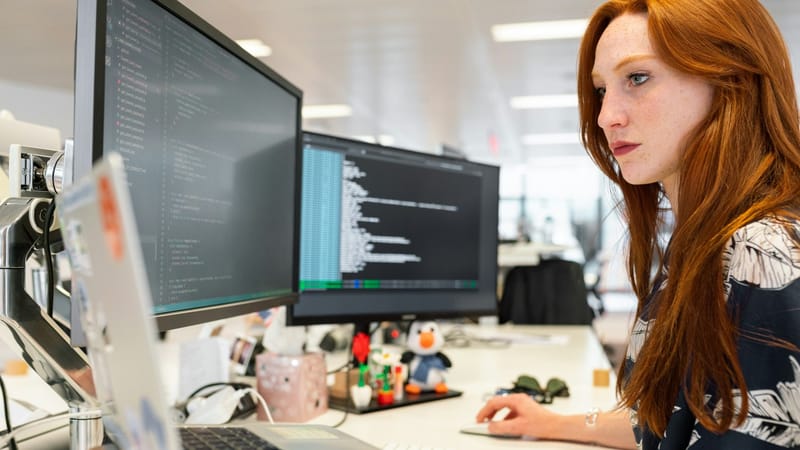Jobs may be going away, but ChatGPT's creator says we’ll find new things to do
OpenAI founder Sam Altman admits his AI revolution means 'a lot of jobs are going away' as generative AI tools like ChatGPT are transforming the global workplace.
Practically every day, those paying attention to such things will see new headlines reporting layoffs at one megacorp or another. In recent days, for example, we learn that companies like Amazon and Morgan Stanley are automating routine tasks and cutting headcount.
If anything, though, OpenAI CEO Sam Altman is surprised that the changes haven't yet been more dramatic.
From his perspective (admittedly, from his seat as an AI billionaire) the future is more utopia rather than dystopia.
Put simply, he reckons humans always “figure out new things to do” and that the long-term outlook could be one of abundance rather than joblessness.
“The most obvious short-term impacts will be potentially employment,” Altman told his brother and venture capital podcast host Jack Altman.
“A lot of jobs will go away; a lot of jobs will just change dramatically.
"But we have always been really good at figuring out new things to do and ways to occupy ourselves…and I’m not a believer that that ever runs out.”
Altman singled out customer-support roles as a prime early target for AI.
Virtual agents can now handle routine inquiries more cheaply and at scale.
Goldman Sachs estimates that up to 300 million jobs worldwide could be lost or degraded by AI over time, and a recent Resume Builder survey found that 37 percent of companies using AI displaced workers in 2023 simply because “they were no longer needed.”
Corporate ranks aren't safe either
Amazon CEO Andy Jassy said this week that his company’s corporate workforce might shrink as AI automates routine tasks across operations, advertising and customer service.
He noted that more than 1,000 AI agents are already deployed or in development at Amazon.
A World Economic Forum survey found that 41% of employers expect to downsize roles in response to AI efficiencies.
A tally of major 2025 layoffs, compiled by Business Insider, layoffs shows tech and finance firms from Intel to Morgan Stanley citing automation among the drivers of headcount cuts.
Intel plans to reduce its foundry division by up to 20%. Meta has continued performance-based layoffs even as it pivots to AI. Morgan Stanley joined banks such as PwC in trimming staff to streamline operations.
Some roles are most at risk
Analysts say the first wave of displacement will hit jobs involving structured, repetitive tasks.
Data-entry clerks and administrative assistants top the list.
They are followed by customer-service agents and basic content-moderation roles.
Experts have for some time predicted that scheduling, simple transaction processing and some writing jobs are the obvious first casualties as AI improves its reasoning and domain-specific capabilities.
Optimism for the future
Despite the foreboding near-term outlook, Altman reckons the broader arc of history suggests we have an encouraging future.
“Going from a time when everybody was a farmer … nothing that we’re currently doing would make any sense [to them] … to now, we have all these industries,” he observed.
“Is it different this time if there are enough resources to go around?”
He pointed to humanity’s knack for inventing new roles, and suggested AI could simply unleash a new wave of creativity and leisure.
“People will just consume a lot more leisure…that’s what creates the difference,” he added.
Indeed, 'think-tank' points in this direction, echoing an idea of a “role shift” for humans in the economy, rather than pure elimination of work-based productivity.
Research suggests up to 30% of tasks in 60% of occupations are automatable, according to a McKinsey study, but the 'augmentation' of roles using AI could boost productivity and create new categories of work.
In this 'human-at-the-center' view of the future, the emphasis would be on jobs that require human insight and management.
A painful adjustment may be coming
Even optimists concede there will likely be a painful adjustment period.
Or as Altman puts it, the big issue comes in the short term. Not least in communities where people aren't able to transition or retrain nimbly.
There are calls for policymakers and educators to accelerate reskilling programs, to help people into new emerging roles - including some jobs AI itself, like AI oversight, human-AI collaboration design and creative services.
For now, the OpenAI chief, who has a personal net worth of nearly $2bn and runs the leading AI company worth $300 billion, clearly has a point of view that's at least glass-half-full, and is looking to the future optimistically.
“I’m not a believer that [finding useful work] ever runs out,” he said. “We’ll figure out new things to do.”







